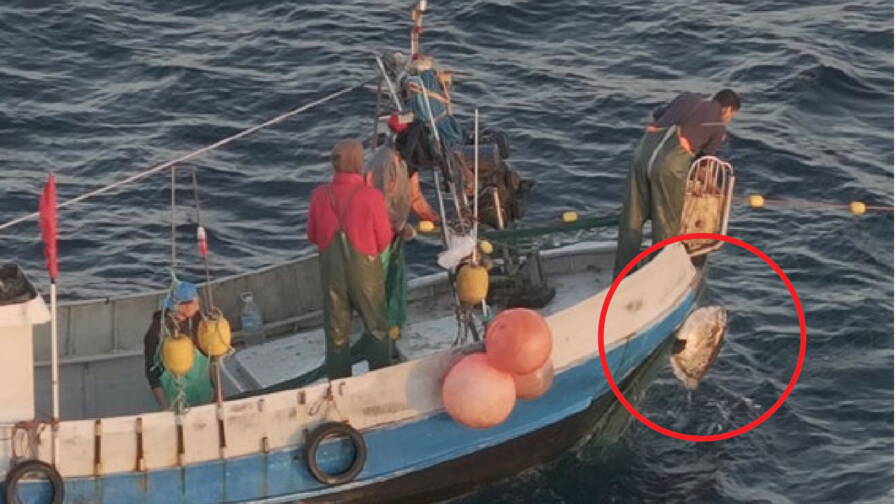Swordfish in Morocco are getting trapped in drifting nets, despite the ban on this device. This practice endangers marine wildlife, particularly dolphins and sea turtles, according to an investigation by the NGO Environmental Justice Foundation.

Imagine walls several kilometers long… suspended in the ocean. While the flexibility of drifting nets allows them to deform with the currents, for fish, sea turtles, or dolphins, these nylon devices are just as « effective » as a brick or concrete wall—almost no one (or nothing) passes through the meshes.
Even when lost in a storm and abandoned by fishermen, these flexible barriers continue to make victims, referred to as « bycatch. » Not to mention the plastic pollution caused by these « ghost nets »!
Due to its impact on marine life, this method has been banned. However, according to an investigation by the Environmental Justice Foundation (EJF), in the Alboran Sea, in the western part of the Mediterranean connected to the Atlantic by the Strait of Gibraltar between Morocco and Spain, small boats have never actually stopped deploying these deadly nets.
Moroccan fishermen caught between prohibitions and the survival of their activity
Thus, some Moroccan fishermen would not hesitate to defy the kingdom’s laws in this « biodiversity hotspot »: one-third of all known species in the Mediterranean inhabit this area, which covers only 2% of its total surface.
« Fishermen interviewed by EJF stated that the difficult economic conditions [COVID-19 pandemic, energy crisis due to Russia’s invasion of Ukraine], coupled with lax enforcement of the drifting net ban, drive people to illicit practices to survive or push them to consider migration, » note the authors of the report.
« Once, I managed to free a baby dolphin that was still alive and crying like a little child. I untangled it, grabbed it, pulled it out of the net, and released it. Its mother was nearby and was crying too. It was very sad to see and experience, » testified a fisherman interviewed by the NGO. « If there were another solution, we would stop fishing with these nets. »
Swordfish critically endangered
The European Union (EU) is the main destination for swordfish from Morocco, and experts believe that EU member states could « import swordfish caught illegally by ships using drifting nets, » which would constitute a « potential violation of European regulations. » The fish would then be fraudulently labeled as « caught with longlines. »
« As the main market, the EU has a duty to ensure that catches [through fishing] are legal and sustainable, » the report emphasizes, also suggesting measures for a « just transition to preserve the livelihoods of fishing communities in northern Morocco. »
Victimized by overfishing for three decades, swordfish is currently « critically endangered » in the Mediterranean, with the biomass of this species having decreased by two-thirds since the 1980s.
Source: GEO


